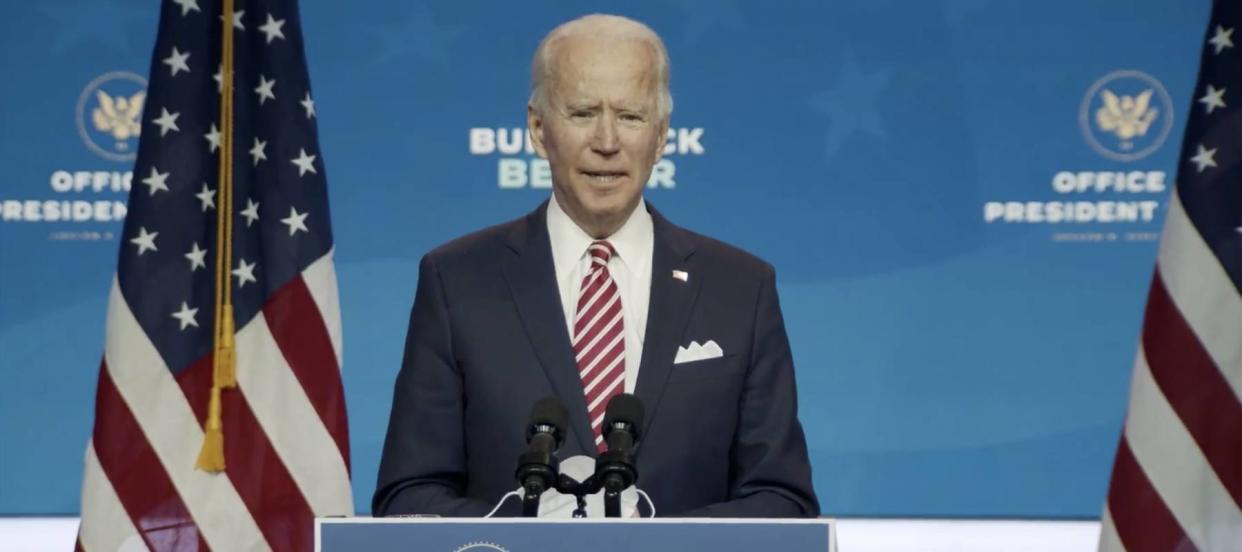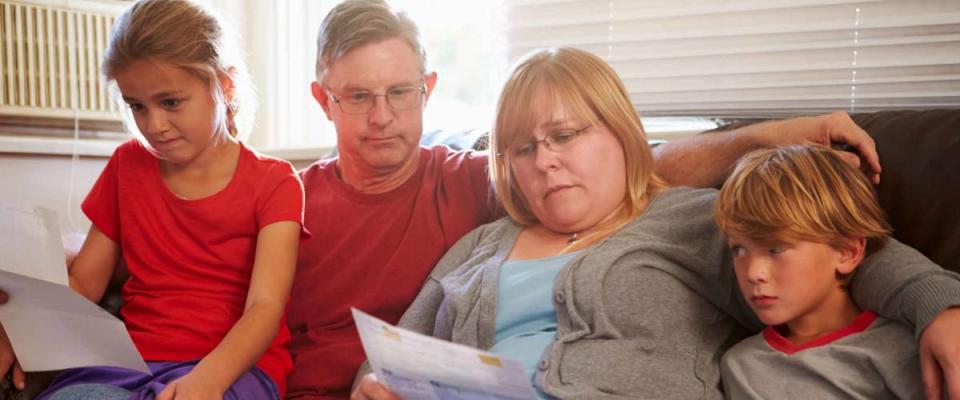With COVID on the rampage, will you get a new stimulus check soon?

As the coronavirus explodes across the U.S. in the worst numbers seen so far, politicians across the spectrum are talking about pumping more relief into the economy ASAP.
President-elect Joe Biden — who supports a second round of those $1,200 "stimulus checks" for Americans — said during a talk on Monday that the U.S. is "going into a very dark winter" and that Republicans and Democrats need to come together on a new aid package.
Lame-duck President Donald Trump had something similar to say last weekend.
"Congress must now do a Covid Relief Bill," Trump tweeted on Saturday. "Needs Democrats support. Make it big and focused. Get it done!"
So, are you likely to get more cash from the government — and when? Here's what we know, including the latest on the possible timing.
What's taking so long?

It's been about seven months since the IRS started distributing out the initial round of relief payments for Americans, and the deadline to get your money — if you haven’t already — is just days away.
So far, the two major political parties have disagreed on a number of issues regarding the next aid package, starting with its size and scope.
In his remarks on Monday, Biden urged Congress to pass a more than $3 trillion Democratic rescue bill that cleared the U.S. House in May. It calls for giving most people another $1,200, plus an additional $500 per dependent.
"I know we can do this," Biden said.
In negotiations that went nowhere before the election, the White House was willing to go as far as about $1.9 trillion; its plan did include more stimulus checks.
Senate Majority Leader Mitch McConnell, the top Republican in Congress, has said he wants a new aid bill wrapped up before the end of the year. But he's backing a stripped-down $500 billion package — without new direct payments.
What's the possible timing now?
Many people have been hoping for months that they'd get a second payment. In a Franklin Templeton-Gallup study released last week, Americans indicated they'd spend more this holiday season if they received another $1,200 from Uncle Sam.
A survey from the U.S. Bureau of Labor Statistics found that close to 60% of Americans used their first stimulus checks to pay for basic expenses like groceries and utilities.
Some also invested the cash or found other, unspecified purposes for the money. Those may have included buying affordable life insurance; sales of life insurance policies have surged this year amid the pandemic.
If a breakthrough can come quickly this month — and it includes new direct payments — Americans could start receiving money as early as December, based on how fast the cash started flowing the first time.
But if the negotiations fail again, a deal might have to wait for the new Congress and new administration in January — meaning no stimulus checks before February.
What to do while you wait

If you can’t wait until December or later to maybe see more government money in your bank account, here are some ideas for how you can find an extra $1,200 on your own.
Hit the brakes on your spending. Get rid of any subscription services you don’t use. Order in less and prepare more meals at home. And download a free price-checking browser extension that will find you the best price whenever you shop online.
Get a grip on your debt. If you’ve been surviving on your credit cards during the pandemic, you’re likely racking up a mountain of interest. You may be able to reduce the amount you’re losing — and become debt-free sooner — by rolling your current balances into a single debt consolidation loan at a lower interest rate.
Cut down your insurance costs. Americans have been driving a lot less this year, and as a result, many car insurance companies have lowered their rates. If your insurer won’t cut you a break, it’s time to start shopping around for a better option. You might also be able to save on your homeowners insurance by comparing quotes from multiple companies.
Refinance your mortgage. Mortgage rates are lower than ever right now, and refinancing your current loan could save you a bundle. According to the data firm Black Knight, 18.5 million American homeowners could bring down their payments by an average $304 per month with a refi.
